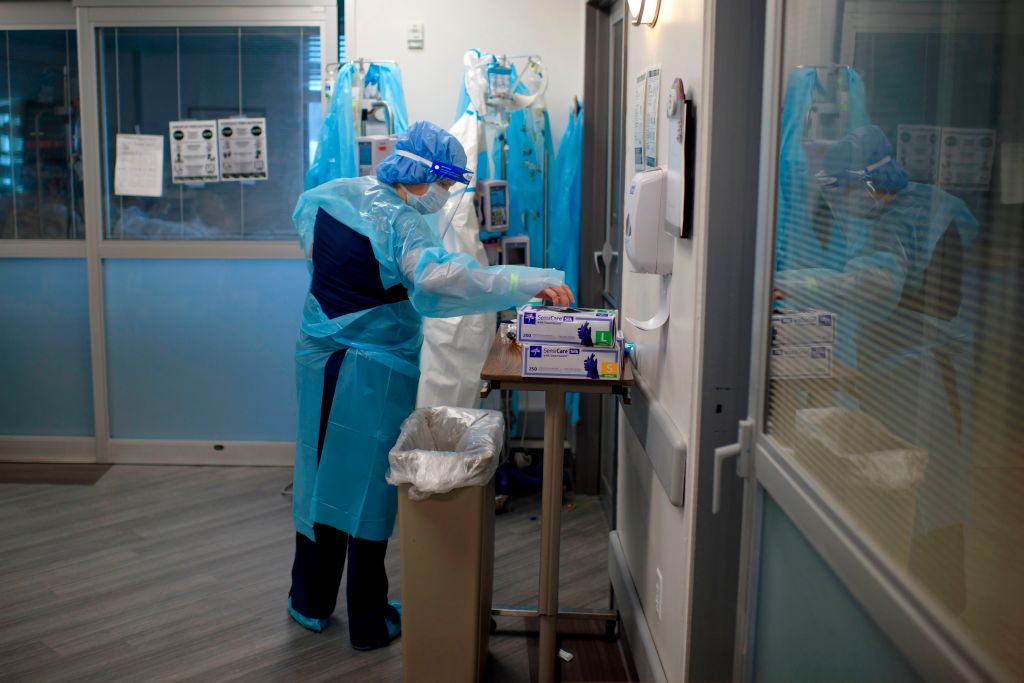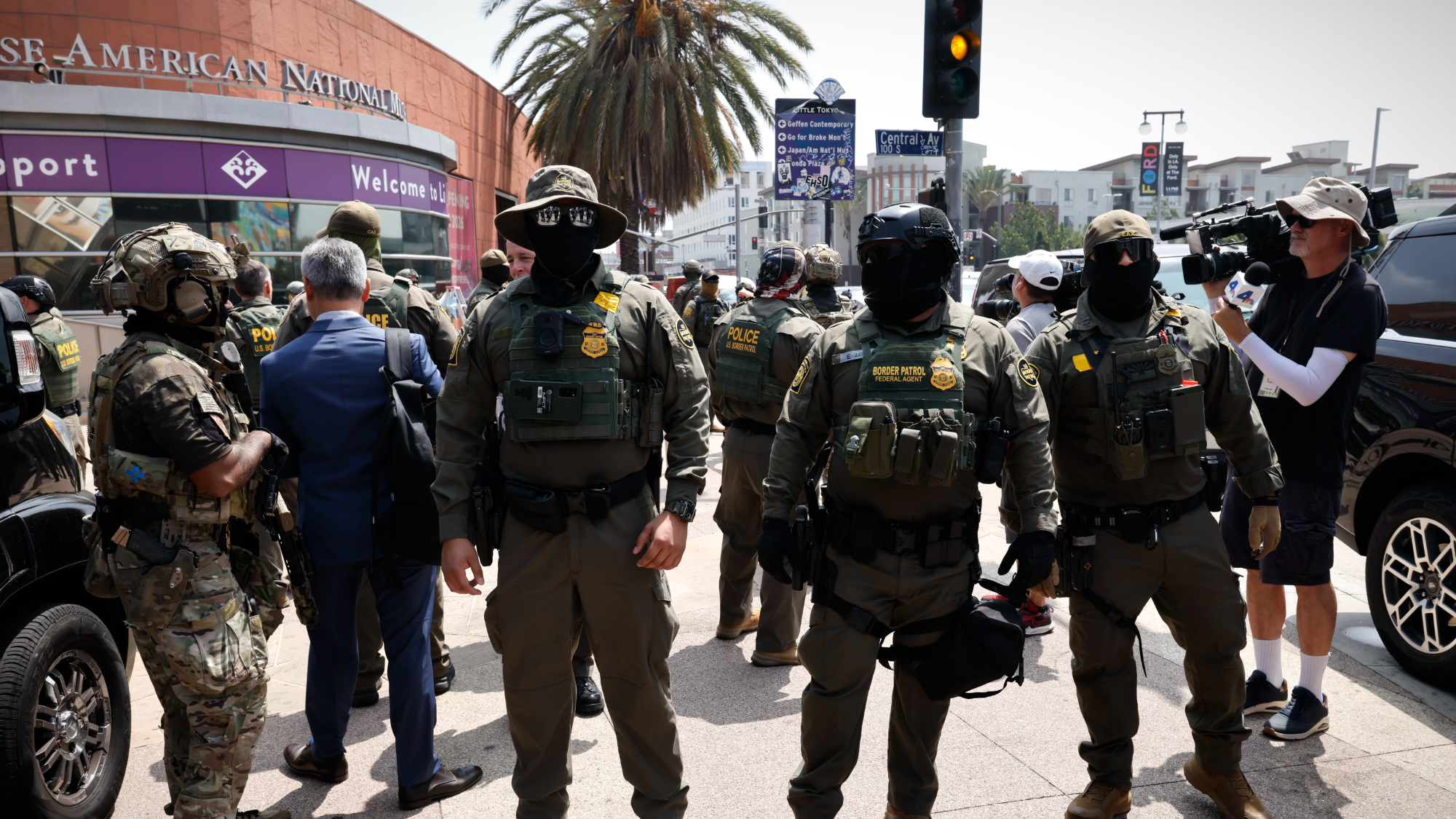Many uninsured coronavirus patients reportedly don't qualify for Trump's coverage program because of other illnesses


A free daily email with the biggest news stories of the day – and the best features from TheWeek.com
You are now subscribed
Your newsletter sign-up was successful
President Trump's stopgap program that covers many medical costs for uninsured coronavirus patients has found favor with some hospital executives, The New York Times reports. Dr. Shareef Elnahal, the chief executive of Newark, New Jersey's, University Hospital called it a "really progressive policy we were really surprised by." The hospital received $8.2 million for treating nearly 800 uninsured COVID-19 patients who accounted for about a third of its coronavirus patients, but the process hasn't been so smooth everywhere.
While New Jersey providers have received $72 million in coronavirus treatment claims, the Times reports, those in New York have received about half that, and the variance continues throughout the U.S. There just doesn't seem to be an explanation as to why. "It's just not clear to me what's going on," said Jennifer Tolbert, director of state health reform at the Kaiser Family Foundation.
Molly Smith, vice president for coverage and state issues forum at the American Hospital Association, said claims have been low in part because of "serious backlogs and delays," but she also noted that many patients likely aren't getting into the system at all because they don't qualify.
The Week
Escape your echo chamber. Get the facts behind the news, plus analysis from multiple perspectives.

Sign up for The Week's Free Newsletters
From our morning news briefing to a weekly Good News Newsletter, get the best of The Week delivered directly to your inbox.
From our morning news briefing to a weekly Good News Newsletter, get the best of The Week delivered directly to your inbox.
The association says some hospitals have reported not submitting anywhere between 40 and 70 percent of claims for uninsured patients. That's because many hospitalized coronavirus patients suffer from other serious medical conditions that are registered as their primary diagnosis instead of the virus. Harris Health, a public system in Houston, Texas, for example, did not bill the federal fund for 80 percent of the roughly 1,300 uninsured COVID-19 patients it had treated through mid-July because many of them had other medical problems, the Times reports. Read more at The New York Times.
A free daily email with the biggest news stories of the day – and the best features from TheWeek.com
Tim is a staff writer at The Week and has contributed to Bedford and Bowery and The New York Transatlantic. He is a graduate of Occidental College and NYU's journalism school. Tim enjoys writing about baseball, Europe, and extinct megafauna. He lives in New York City.
-
 The environmental cost of GLP-1s
The environmental cost of GLP-1sThe explainer Producing the drugs is a dirty process
-
 Greenland’s capital becomes ground zero for the country’s diplomatic straits
Greenland’s capital becomes ground zero for the country’s diplomatic straitsIN THE SPOTLIGHT A flurry of new consular activity in Nuuk shows how important Greenland has become to Europeans’ anxiety about American imperialism
-
 ‘This is something that happens all too often’
‘This is something that happens all too often’Instant Opinion Opinion, comment and editorials of the day
-
 House votes to end Trump’s Canada tariffs
House votes to end Trump’s Canada tariffsSpeed Read Six Republicans joined with Democrats to repeal the president’s tariffs
-
 Bondi, Democrats clash over Epstein in hearing
Bondi, Democrats clash over Epstein in hearingSpeed Read Attorney General Pam Bondi ignored survivors of convicted sex offender Jeffrey Epstein and demanded that Democrats apologize to Trump
-
 El Paso airspace closure tied to FAA-Pentagon standoff
El Paso airspace closure tied to FAA-Pentagon standoffSpeed Read The closure in the Texas border city stemmed from disagreements between the Federal Aviation Administration and Pentagon officials over drone-related tests
-
 Judge blocks Trump suit for Michigan voter rolls
Judge blocks Trump suit for Michigan voter rollsSpeed Read A Trump-appointed federal judge rejected the administration’s demand for voters’ personal data
-
 US to send 200 troops to Nigeria to train army
US to send 200 troops to Nigeria to train armySpeed Read Trump has accused the West African government of failing to protect Christians from terrorist attacks
-
 Grand jury rejects charging 6 Democrats for ‘orders’ video
Grand jury rejects charging 6 Democrats for ‘orders’ videoSpeed Read The jury refused to indict Democratic lawmakers for a video in which they urged military members to resist illegal orders
-
 Judge rejects California’s ICE mask ban, OKs ID law
Judge rejects California’s ICE mask ban, OKs ID lawSpeed Read Federal law enforcement agents can wear masks but must display clear identification
-
 Lawmakers say Epstein files implicate 6 more men
Lawmakers say Epstein files implicate 6 more menSpeed Read The Trump department apparently blacked out the names of several people who should have been identified
